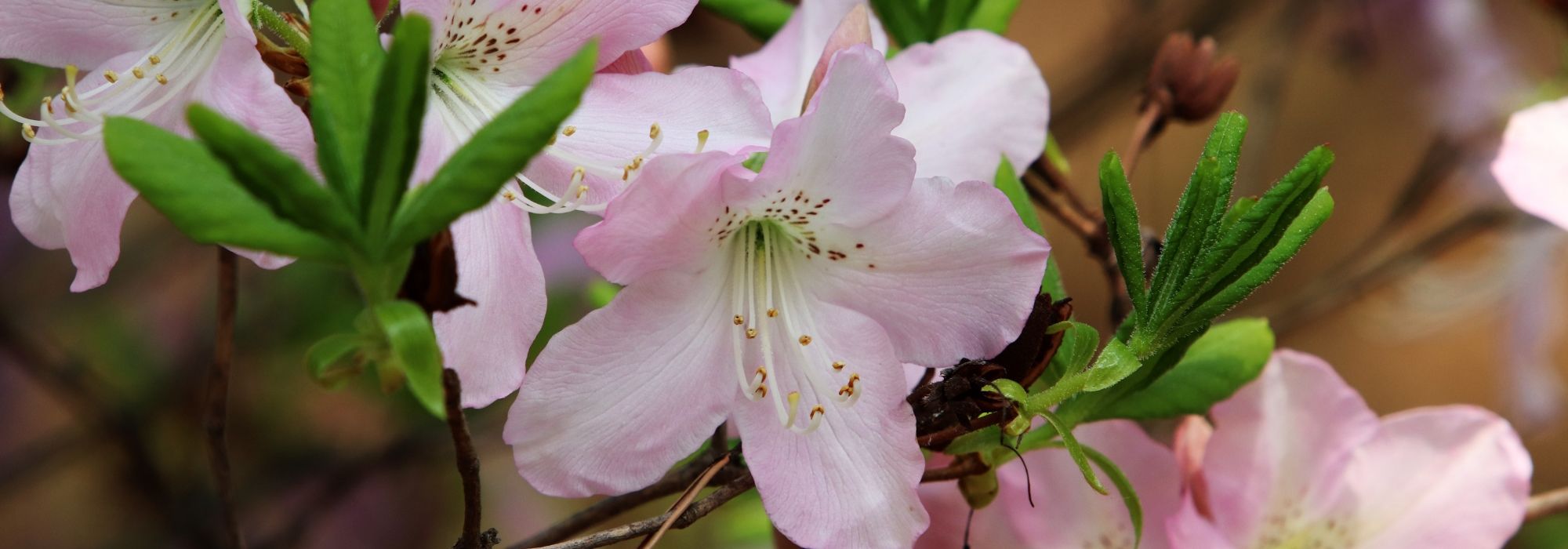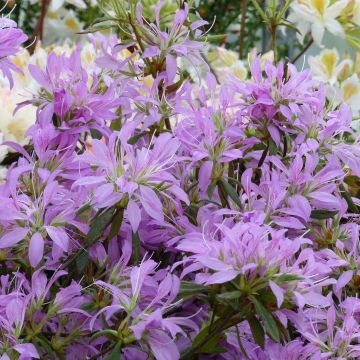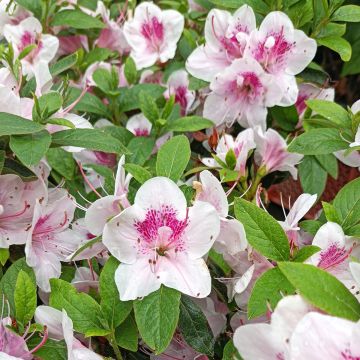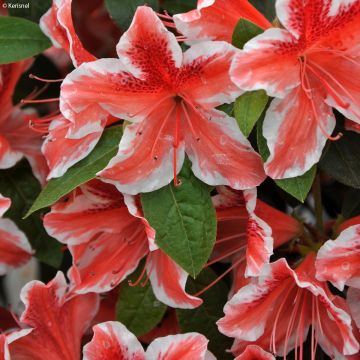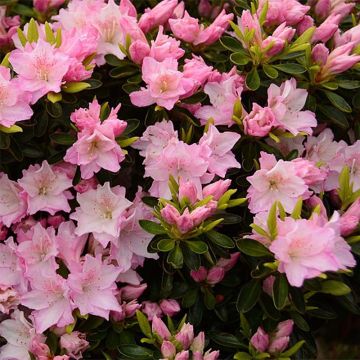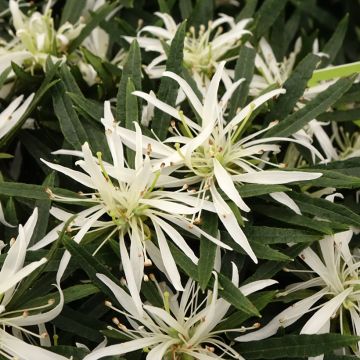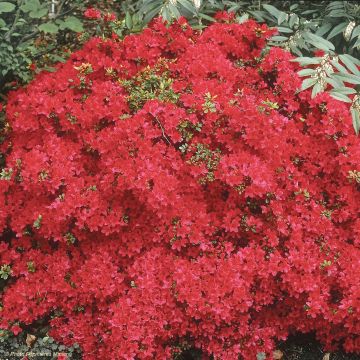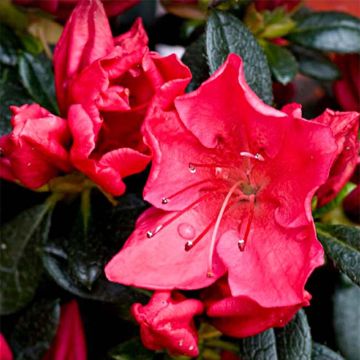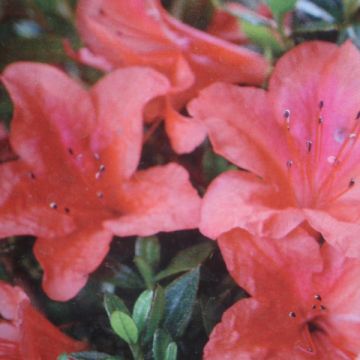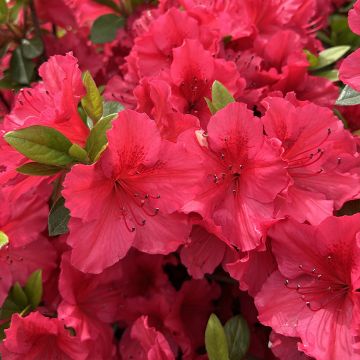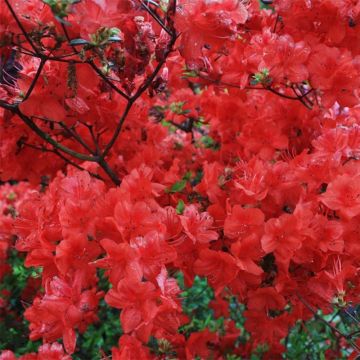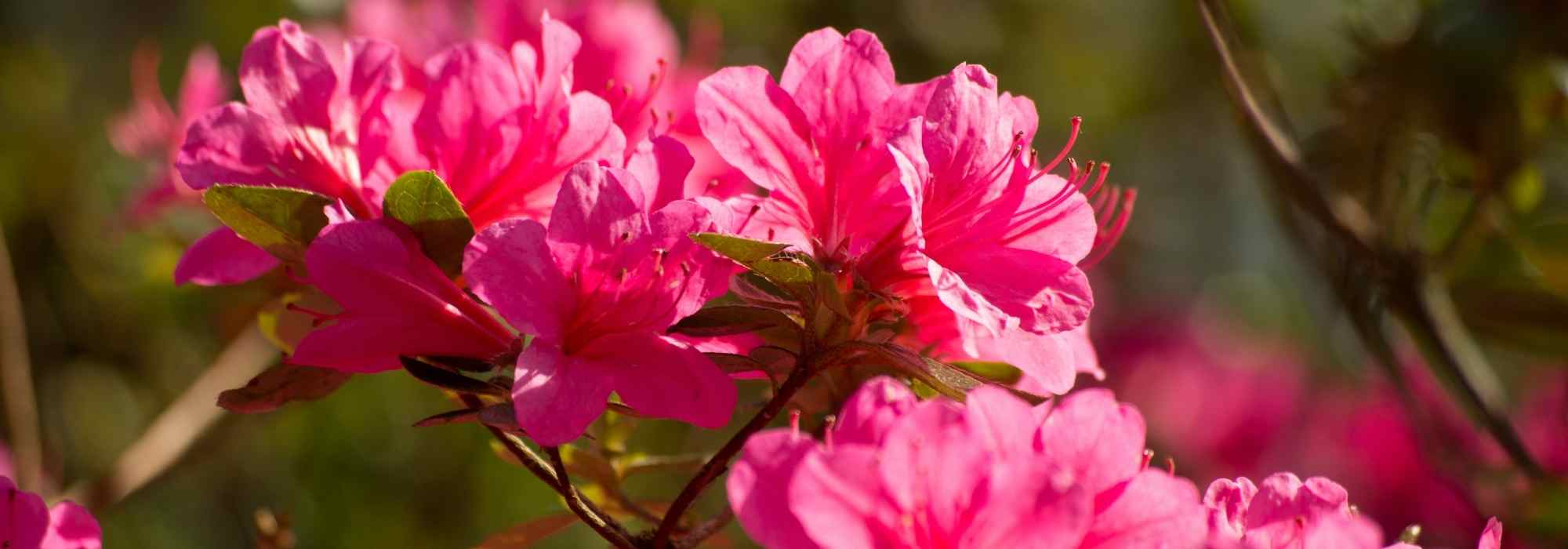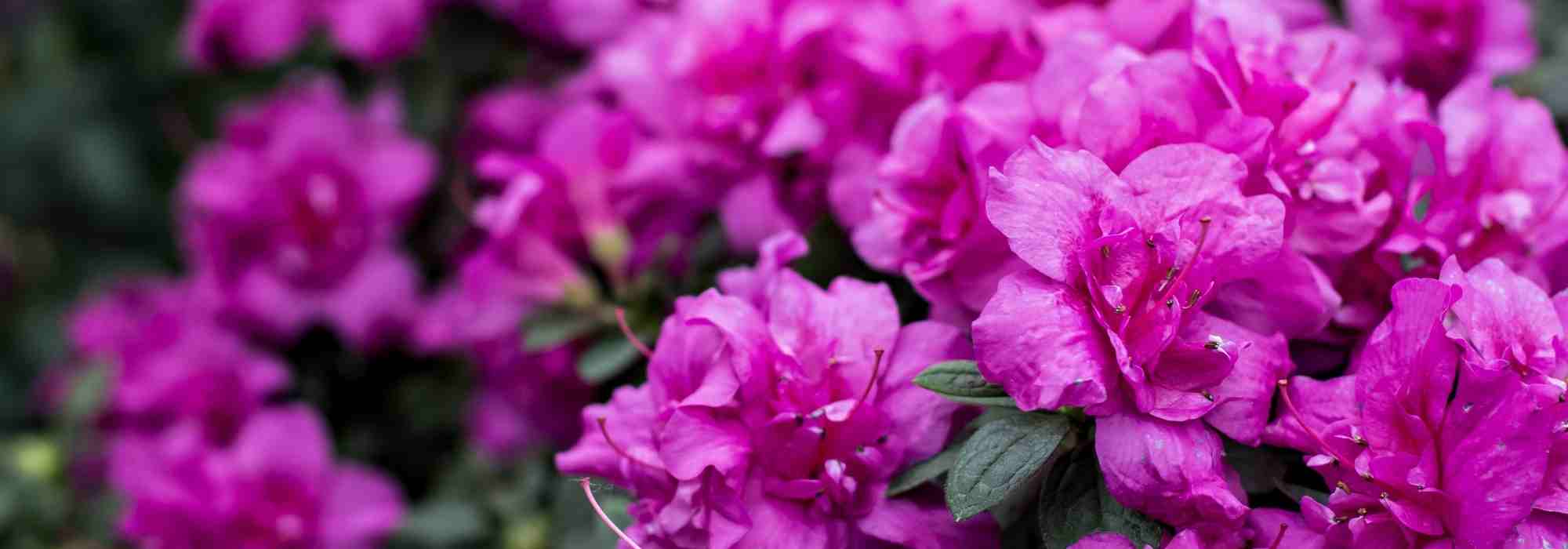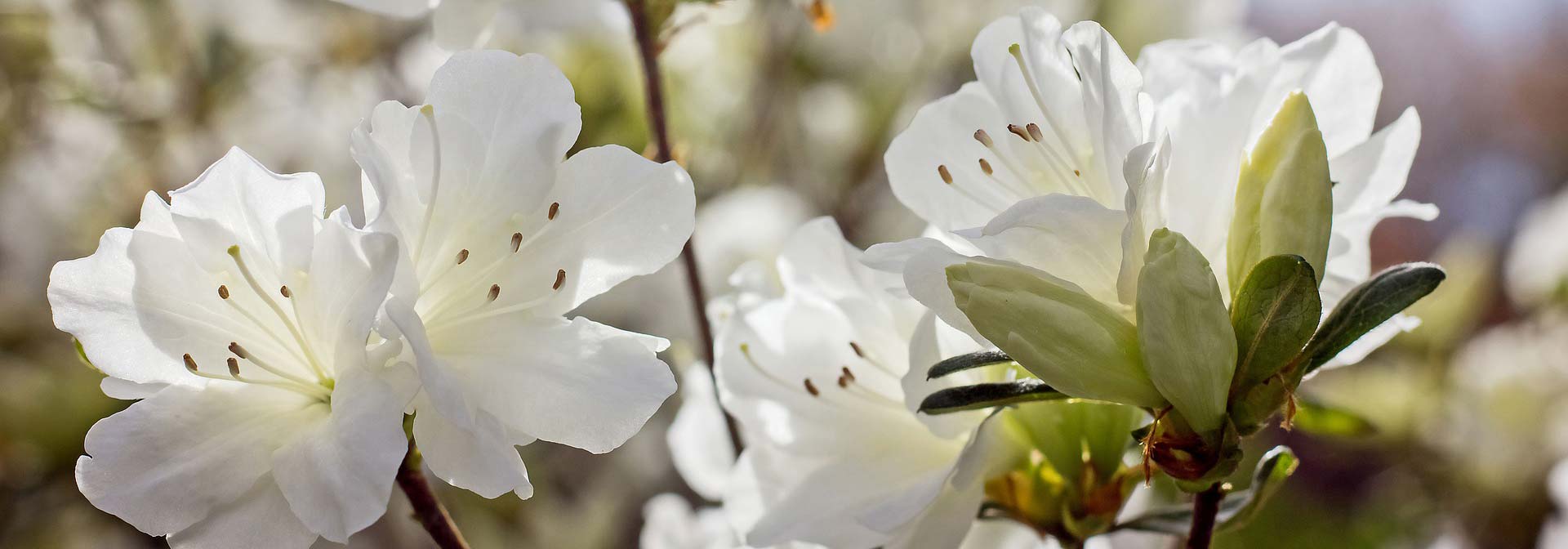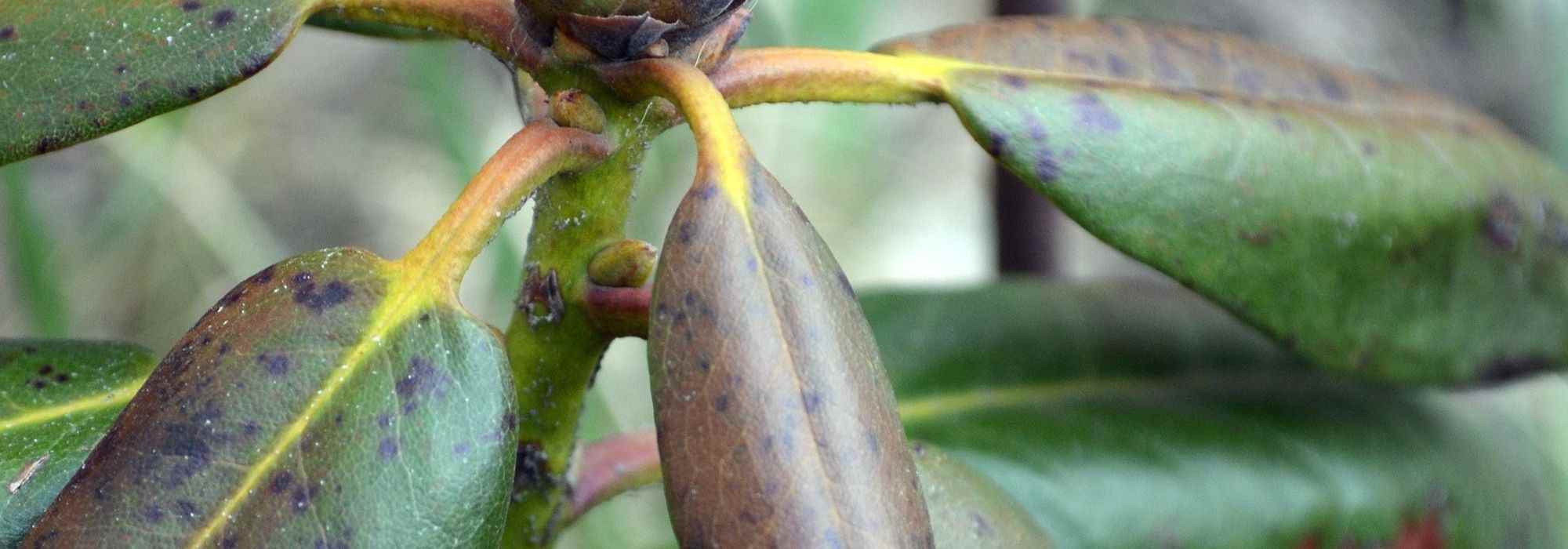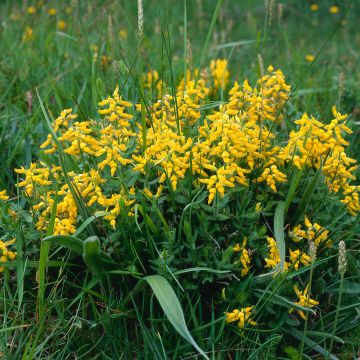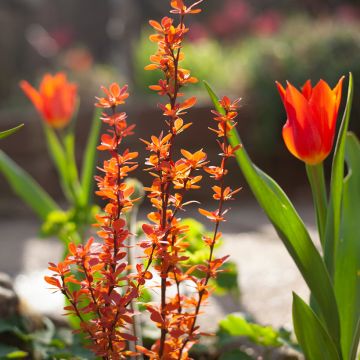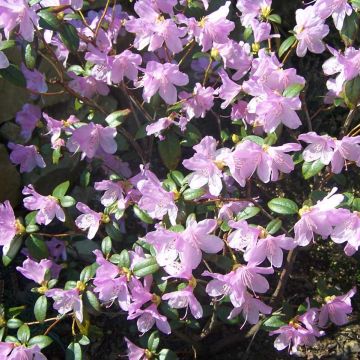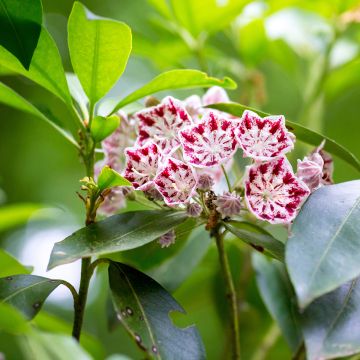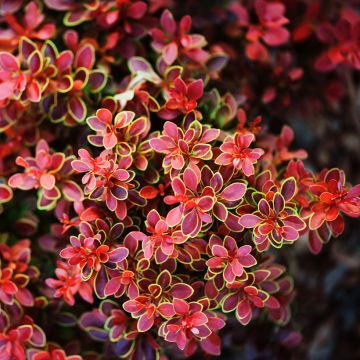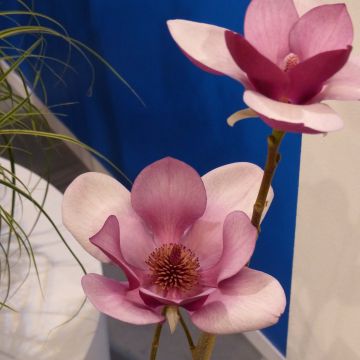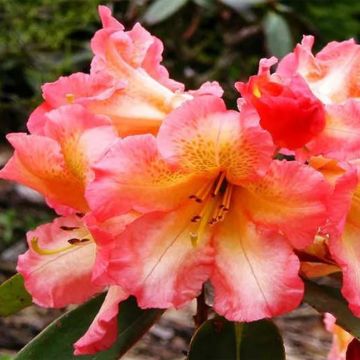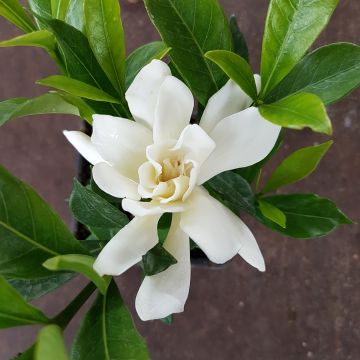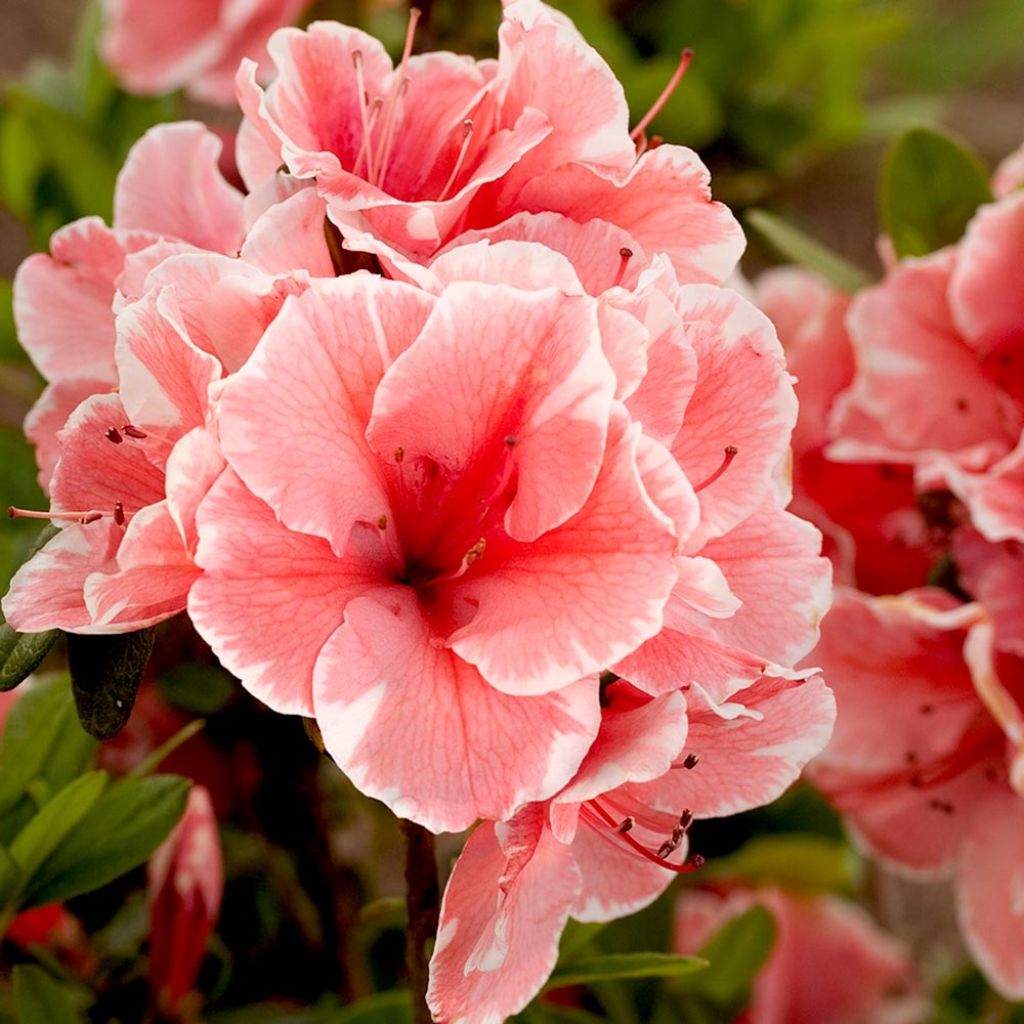

Azalea japonica ENCORE Sunburst Roblet
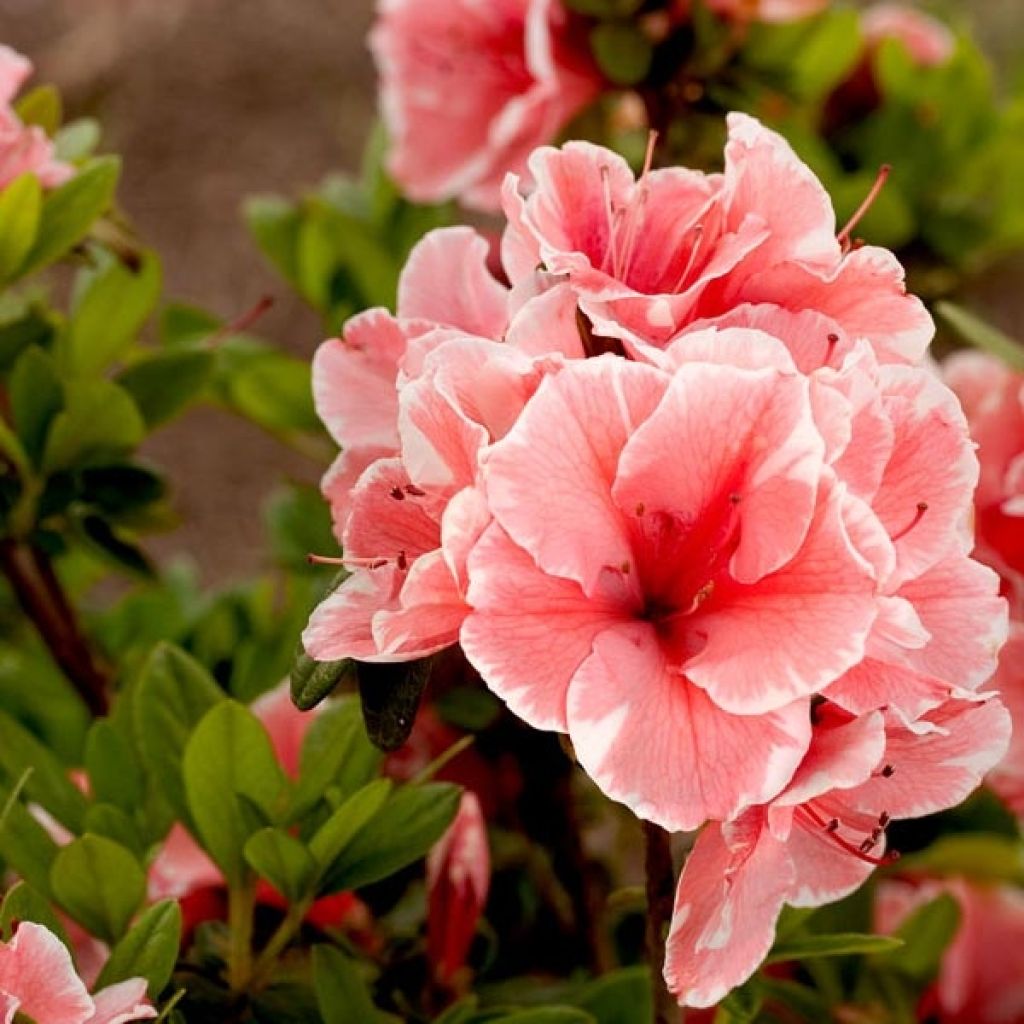

Azalea japonica ENCORE Sunburst Roblet
Azalea japonica ENCORE Sunburst Roblet
Rhododendron (Azalea) japonica ENCORE® Sunburst 'Roblet'
Japanese Azalea
Plant received in good condition, lovely recovery, looking forward to the flowering next year.
laurence, 15/10/2024
Special offer!
Receive a €20 voucher for any order over €90 (excluding delivery costs, credit notes, and plastic-free options)!
1- Add your favorite plants to your cart.
2- Once you have reached €90, confirm your order (you can even choose the delivery date!).
3- As soon as your order is shipped, you will receive an email containing your voucher code, valid for 3 months (90 days).
Your voucher is unique and can only be used once, for any order with a minimum value of €20, excluding delivery costs.
Can be combined with other current offers, non-divisible and non-refundable.
Home or relay delivery (depending on size and destination)
Schedule delivery date,
and select date in basket
This plant carries a 24 months recovery warranty
More information
We guarantee the quality of our plants for a full growing cycle, and will replace at our expense any plant that fails to recover under normal climatic and planting conditions.

Does this plant fit my garden?
Set up your Plantfit profile →
Description
The Encore 'Sunburst' Hybrid Azalea is a magnificent evergreen Azalea from Japan that grows into a wide bush and is adorned with almost tricolored flowers, salmon-pink edged with white around an almost red throat. It belongs to the Encore series, which has made the Japanese Azalea a plant almost as decorative as the rose, with its successive and spectacular flowerings . This lovely evergreen bush blooms two to three times a year depending on the climate, from March-April to October. Thriving in sun or partial shade and relatively hardy, the Encore hybrid Azaleas are very versatile and come in a variety of styles, with single or double flowers, more or less compact and in a range of colours including white, red, various shades of pink, salmon, and orange vermillion. Mix them together to create either rustic flower beds or more sophisticated displays. Like all Azaleas, 'Sunburst' prefers non-calcareous soils, moist but well-draining, and fertile enough to sustain its multiple flowerings.
From a botanical point of view, Azaleas are actually Rhododendrons, plants from the large Ericaceae family. The hybrids from the Encore series, distributed by Globe Planter, were created thanks to Buddy Lee, a talented American nurseryman specializing in these plants. These quite fantastic Azaleas are the result of a long process of hybridisation and selection, with the aim of obtaining varieties capable of flowering several times a year, as well as withstanding the sun.
'Sunburst' is a medium-sized variety, with a slightly spreading bushy habit. The bush reaches about 90 cm (35.4 in) in height and 1 m (3 ft 4 in) in spread, rather slow-growing, though a bit faster than that of classic Japanese Azaleas. Its particularly abundant first flowering, begins in March-April consisting of slightly frilled, single or occasionally semi-double flowers, soft salmon-pink and randomly edged with white, with a large pink-red blotch at the centre. They measure about 5-6 cm (2-2.4 in) in diameter, are funnel-shape, and arranged in small terminal clusters. A second wave of flowers begins in late May, when new shoots appear, already bearing new flower buds to open in summer. A final flowering occurs in early autumn, usually in October. The foliage of the Japanese Azalea, more or less evergreen depending on the severity of the winter, consists of small, simple, glossy, elliptical leaves with smooth edges, arranged alternately on the branches. They are rather light green in spring, darkening in summer. This variety is hardy down to -12/-15°C (10.4 - 5 °F). Azaleas and Rhododendrons have a shallow root system that always needs to be kept moist, but they also dislike waterlogged soil which would suffocate the roots.
Japanese azaleas thrive in cool climates with distinct winters, planted in humus-rich and acid soil, such as ericaceous soil. In these conditions, they are very beautiful evergreen shrubs for flower beds or pots, attractive all year round. They harmonise beautifully with heathers, Japanese maples, or their relatives, Chinese Azaleas, which change their colours with the seasons. Combine them with flowering Japanese quince, Japanese camellias, and their graceful, often fragrant, autumn-flowering cousins, the Camellia sasanqua hybrids. This 'Sunburst' variety will look wonderful in a large, cool, moist rockery or flowerbed with Chinese Azaleas or panicle hydrangeas in a small Japanese or romantic-style garden. It will also make a beautiful suject in a large container to adorn a terrace or balcony, planted in suitable soil and watered with lime-free water.
Azalea japonica ENCORE Sunburst Roblet in pictures
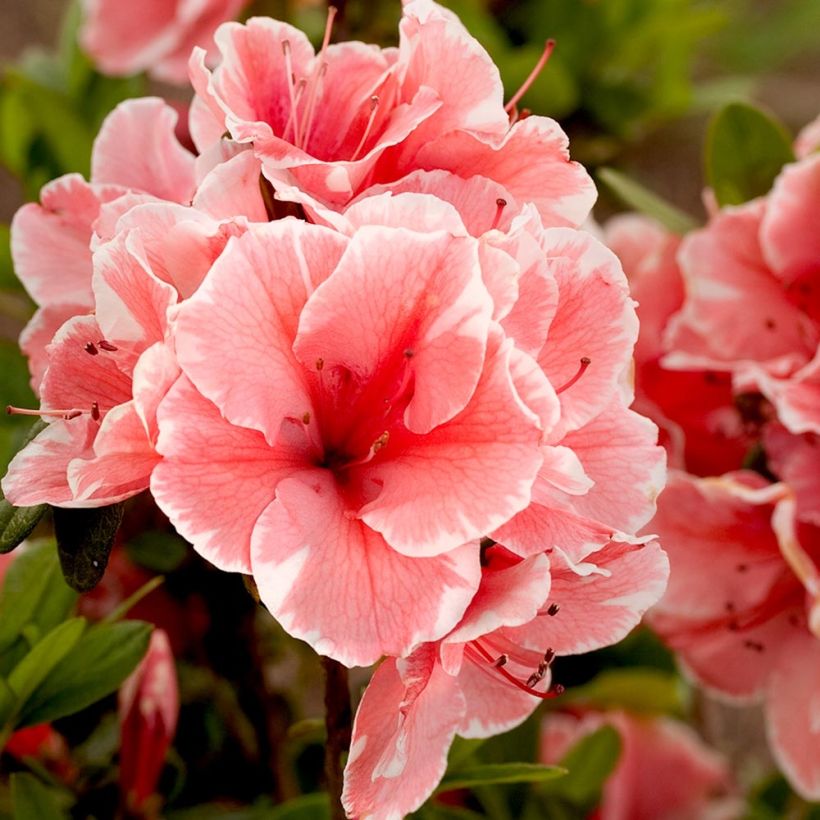

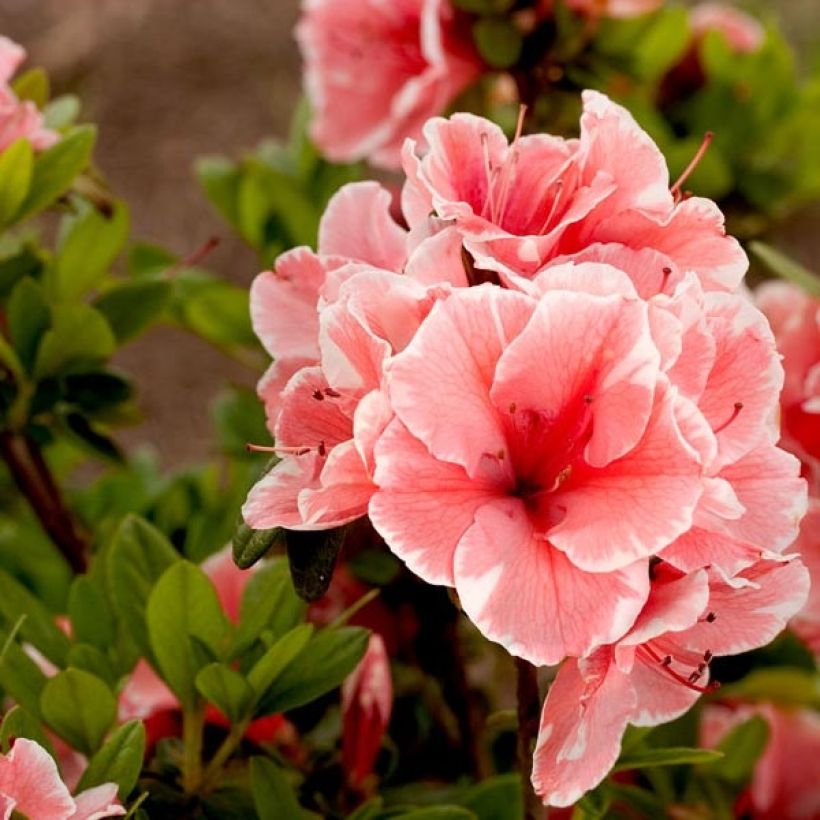

Plant habit
Flowering
Foliage
Botanical data
Rhododendron (Azalea)
japonica
ENCORE® Sunburst 'Roblet'
Ericaceae
Japanese Azalea
Cultivar or hybrid
Other Japanese Azalea
View all →Planting and care
The Encore hybrid Azalea does well in sun (not too intense), but its favourite position is in partial shade, especially in hot and very sunny regions. Plant it in a humus-rich and well-drained, alkaline-free soil. When planting, make sure not to bury the root ball too deep, it should be level with the surface of the soil. Water abundantly with lime-free water during dry periods, at least once a week in the first year. In spring, apply fertilizer for ericaceous plants. Pruning is not essential but it is a good idea to prune lightly after flowering to keep the plant looking neat. Remove spent flowers to encourage new growth. The Azalea suffers from very few diseases when well established outdoors. It can be attacked by weevils that eat the edges of the leaves and rootlets, and by the famous "Rhododendron lace bug", not often causing major damage. If the soil is chalky or poorly drained, and if the root ball is planted too deep, the leaves may turn yellow and eventually die. Japanese azaleas do not tolerate the dry environments of our interiors at all.
Planting period
Intended location
Care
Planting & care advice
-
, onOrder confirmed
Reply from on Promesse de fleurs
Similar products
Haven't found what you were looking for?
Hardiness is the lowest winter temperature a plant can endure without suffering serious damage or even dying. However, hardiness is affected by location (a sheltered area, such as a patio), protection (winter cover) and soil type (hardiness is improved by well-drained soil).

Photo Sharing Terms & Conditions
In order to encourage gardeners to interact and share their experiences, Promesse de fleurs offers various media enabling content to be uploaded onto its Site - in particular via the ‘Photo sharing’ module.
The User agrees to refrain from:
- Posting any content that is illegal, prejudicial, insulting, racist, inciteful to hatred, revisionist, contrary to public decency, that infringes on privacy or on the privacy rights of third parties, in particular the publicity rights of persons and goods, intellectual property rights, or the right to privacy.
- Submitting content on behalf of a third party;
- Impersonate the identity of a third party and/or publish any personal information about a third party;
In general, the User undertakes to refrain from any unethical behaviour.
All Content (in particular text, comments, files, images, photos, videos, creative works, etc.), which may be subject to property or intellectual property rights, image or other private rights, shall remain the property of the User, subject to the limited rights granted by the terms of the licence granted by Promesse de fleurs as stated below. Users are at liberty to publish or not to publish such Content on the Site, notably via the ‘Photo Sharing’ facility, and accept that this Content shall be made public and freely accessible, notably on the Internet.
Users further acknowledge, undertake to have ,and guarantee that they hold all necessary rights and permissions to publish such material on the Site, in particular with regard to the legislation in force pertaining to any privacy, property, intellectual property, image, or contractual rights, or rights of any other nature. By publishing such Content on the Site, Users acknowledge accepting full liability as publishers of the Content within the meaning of the law, and grant Promesse de fleurs, free of charge, an inclusive, worldwide licence for the said Content for the entire duration of its publication, including all reproduction, representation, up/downloading, displaying, performing, transmission, and storage rights.
Users also grant permission for their name to be linked to the Content and accept that this link may not always be made available.
By engaging in posting material, Users consent to their Content becoming automatically accessible on the Internet, in particular on other sites and/or blogs and/or web pages of the Promesse de fleurs site, including in particular social pages and the Promesse de fleurs catalogue.
Users may secure the removal of entrusted content free of charge by issuing a simple request via our contact form.
The flowering period indicated on our website applies to countries and regions located in USDA zone 8 (France, the United Kingdom, Ireland, the Netherlands, etc.)
It will vary according to where you live:
- In zones 9 to 10 (Italy, Spain, Greece, etc.), flowering will occur about 2 to 4 weeks earlier.
- In zones 6 to 7 (Germany, Poland, Slovenia, and lower mountainous regions), flowering will be delayed by 2 to 3 weeks.
- In zone 5 (Central Europe, Scandinavia), blooming will be delayed by 3 to 5 weeks.
In temperate climates, pruning of spring-flowering shrubs (forsythia, spireas, etc.) should be done just after flowering.
Pruning of summer-flowering shrubs (Indian Lilac, Perovskia, etc.) can be done in winter or spring.
In cold regions as well as with frost-sensitive plants, avoid pruning too early when severe frosts may still occur.
The planting period indicated on our website applies to countries and regions located in USDA zone 8 (France, United Kingdom, Ireland, Netherlands).
It will vary according to where you live:
- In Mediterranean zones (Marseille, Madrid, Milan, etc.), autumn and winter are the best planting periods.
- In continental zones (Strasbourg, Munich, Vienna, etc.), delay planting by 2 to 3 weeks in spring and bring it forward by 2 to 4 weeks in autumn.
- In mountainous regions (the Alps, Pyrenees, Carpathians, etc.), it is best to plant in late spring (May-June) or late summer (August-September).
The harvesting period indicated on our website applies to countries and regions in USDA zone 8 (France, England, Ireland, the Netherlands).
In colder areas (Scandinavia, Poland, Austria...) fruit and vegetable harvests are likely to be delayed by 3-4 weeks.
In warmer areas (Italy, Spain, Greece, etc.), harvesting will probably take place earlier, depending on weather conditions.
The sowing periods indicated on our website apply to countries and regions within USDA Zone 8 (France, UK, Ireland, Netherlands).
In colder areas (Scandinavia, Poland, Austria...), delay any outdoor sowing by 3-4 weeks, or sow under glass.
In warmer climes (Italy, Spain, Greece, etc.), bring outdoor sowing forward by a few weeks.






























